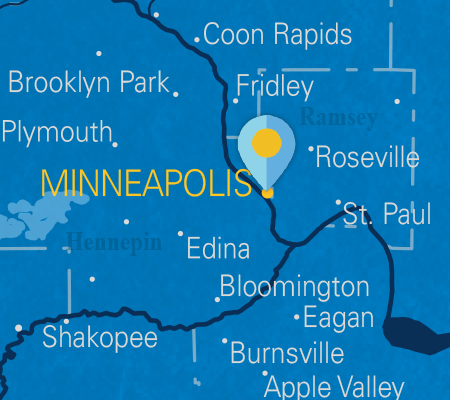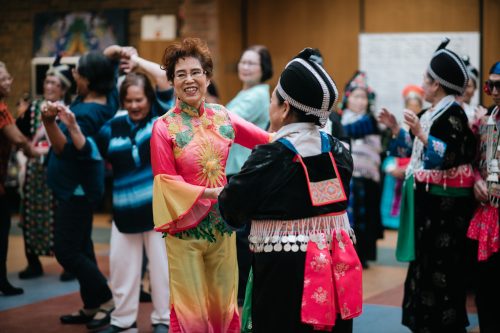
The multi-cultural senior center helps elders find connection and embrace wellness
Supporting seniors from Hmong and other minority backgrounds through meals, health services, and Bingo.

The Hmong New Year celebration at Park ElderCenter in Minneapolis is an annual tradition, celebrated with a daylong program of food, dancing, games and more. It’s just one example of how the center supports the health and independence of older adults.
“So many seniors tell us the center is a second home to them,” says Bee Vue, the service director of Park ElderCenter, part of Volunteers of America – Minnesota and Wisconsin (VOA-MN/WI), a non-profit health organization that serves nearly 25,000 people in Minnesota and Wisconsin. “We do our best to provide a welcoming environment.”
A central health focus at Park ElderCenter is nurturing the mental wellbeing of its members. Recent research indicates that loneliness and isolation can have a significant impact on overall health, even increasing the risk of early death. Furthermore, isolation can be more difficult to manage in immigrant, refugee and minority communities, where language and cultural differences are often barriers to making social connections. That’s where Park ElderCenter comes in.
Located in a public housing high-rise building on the southern edge of downtown Minneapolis, Park ElderCenter offers culturally inclusive programming, with an emphasis on Hmong and African-American communities. Vue, who emigrated from Laos in 1987, is quick to emphasize that the center is open to everyone, noting members who are Native American, East Indian, and Somalian. “We’re like the United Nations,” he says with a smile.
Group activities are a big part of the social fabric at Park ElderCenter.
“I love playing Bingo here,” says Hmong elder Blia M. Gasao through an interpreter. “It helps me keep my mind active.”
Mai Vue, who was shot in Laos during the Vietnam War before escaping to America, is another who finds solace in the game. “It brings me peace of mind,” she says.
Park ElderCenter is much more than games, however. It provides a wide variety of services — including meals, exercise classes, health counseling, and legal assistance — through partnerships with Second Harvest Food Bank, the University of Minnesota, and the American Cancer Society. The center is a place where people can drop in and find the things they need, even if they have a hard time asking for them.
“Language can be a barrier when asking for help, and we want to make sure the elders feel welcomed and heard,” says Anna Petersmeyer, chief operating officer of VOA. “For the past 30 years we have been privileged to support the elders in our community.”

Bee Vue, the service director of Park ElderCenter, part of Volunteers of America – Minnesota and Wisconsin.
Vue understands that not every day can be treated like a new year’s celebration, filled with decorative dress, dancers, performers and prizes, but he knows that every day can be filled with dignity.
“We love connecting our seniors to services in the community,” he says. “We want to see them come through our doors. If we can get them here, we consider that half the battle. Then we can fill their days with something positive.”
